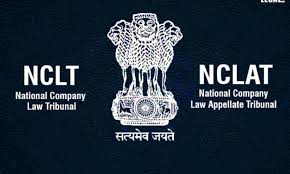NCLT/NCLAT

The National Company Law Tribunal (NCLT) and the National Company Law Appellate Tribunal (NCLAT) are specialized quasi-judicial bodies established under the Companies Act, 2013, with the primary objective of expeditious resolution of corporate disputes, insolvency proceedings, and matters related to company law. This article aims to provide an overview of the structure, functions, powers, and significance of NCLT and NCLAT in India’s corporate legal framework.
Introduction to NCLT and NCLAT:
- National Company Law Tribunal (NCLT): NCLT is a quasi-judicial body established under the Companies Act, 2013, with jurisdiction over matters related to company law, mergers, amalgamations, restructuring, insolvency and bankruptcy, and other corporate disputes. It has benches located in various cities across India.
- National Company Law Appellate Tribunal (NCLAT): NCLAT is the appellate authority for appeals filed against the orders passed by NCLT. It hears appeals, reviews, and revisions of orders passed by NCLT benches and exercises supervisory jurisdiction over their functioning. NCLAT is headquartered in New Delhi.
Functions and Powers of NCLT:
- Corporate Matters: NCLT adjudicates matters related to the incorporation, management, administration, and winding up of companies under the Companies Act, 2013. It has jurisdiction over mergers, amalgamations, demergers, reduction of share capital, and other corporate restructuring activities.
- Insolvency Proceedings: NCLT is the adjudicating authority for corporate insolvency resolution proceedings (CIRP) under the Insolvency and Bankruptcy Code, 2016 (IBC). It hears and decides applications filed by creditors, debtors, or insolvency professionals for initiation and resolution of insolvency proceedings against corporate debtors.
- Compounding of Offences: NCLT has the power to compound certain offences under the Companies Act, 2013, allowing companies to settle minor violations by paying monetary penalties or complying with regulatory requirements without undergoing lengthy legal proceedings.
- Class Action Suits: NCLT entertains class action suits filed by shareholders or depositors against companies for alleged oppression, mismanagement, or unfair treatment, providing a platform for aggrieved stakeholders to seek redressal of their grievances.
Functions and Powers of NCLAT:
- Appellate Jurisdiction: NCLAT hears appeals against the orders passed by NCLT benches across India. It has the authority to review, modify, or set aside the orders of NCLT on grounds of legality, procedural irregularity, or substantive justice.
- Review and Revision: NCLAT exercises supervisory jurisdiction over NCLT, reviewing its orders and decisions to ensure consistency, adherence to legal principles, and fairness in the adjudication of corporate disputes and insolvency matters.
- Interim Relief: NCLAT has the power to grant interim relief, including stay orders, injunctions, or directions, to parties pending the final disposal of appeals, safeguarding their rights and interests during the appellate proceedings.
- Precedent Setting: NCLAT’s decisions serve as precedents for future cases and provide guidance on interpretation and application of company law, insolvency law, and related legal principles, contributing to the development of jurisprudence in corporate and commercial matters.
Significance of NCLT and NCLAT:
- Specialized Expertise: NCLT and NCLAT comprise judges, legal professionals, and experts with specialized knowledge and experience in corporate law, insolvency law, and dispute resolution, ensuring efficient and effective adjudication of complex corporate disputes.
- Timely Resolution: NCLT and NCLAT are mandated to dispose of cases within prescribed timelines, promoting expeditious resolution of corporate disputes, insolvency proceedings, and other legal matters, thereby minimizing delays and ensuring access to justice.
- Transparency and Accountability: NCLT and NCLAT operate with transparency, fairness, and accountability, providing parties with a forum for fair and impartial adjudication of their disputes, upholding the rule of law and the principles of natural justice.
- Promotion of Ease of Doing Business: NCLT and NCLAT play a crucial role in promoting ease of doing business by providing a streamlined and efficient mechanism for resolution of corporate disputes, facilitating corporate restructuring, and promoting investor confidence in India’s business environment.
Challenges and Way Forward:
- Case Backlog: NCLT and NCLAT face challenges related to case backlog, procedural delays, and resource constraints, necessitating measures to enhance infrastructure, capacity, and efficiency to expedite case disposal and reduce pendency.
- Capacity Building: There is a need for continuous training, capacity building, and skill development of judges, staff, and stakeholders involved in NCLT and NCLAT proceedings to ensure effective administration of justice and adherence to best practices.
- Technological Integration: Leveraging technology and digital platforms for case management, e-filing, video conferencing, and virtual hearings can enhance the efficiency, accessibility, and transparency of NCLT and NCLAT proceedings, enabling remote participation and reducing physical barriers.
